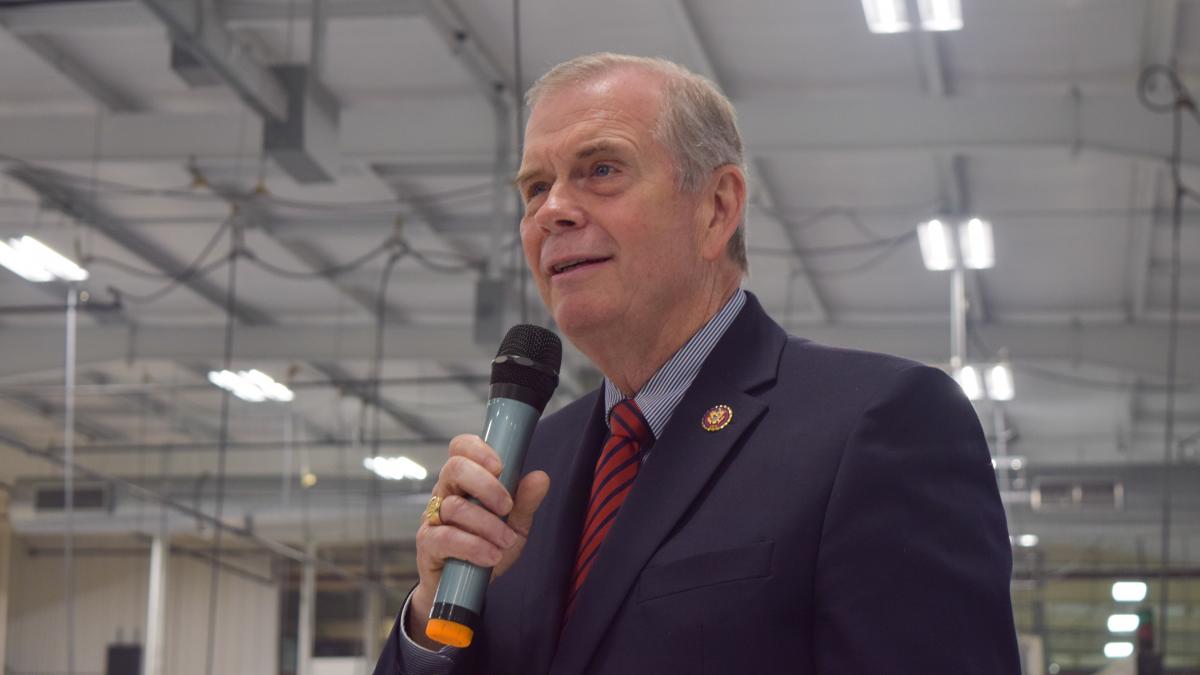Walberg, Michigan Colleagues Urge Granholm to Unleash American Energy

Washington, D.C.—Today, U.S. Representative Tim Walberg (MI-07) led his Michigan Republican colleagues in sending a letter to U.S. Secretary of Energy Jennifer Granholm regarding the Biden administration’s lack of action to boost domestic energy production. Following the Biden administration getting rebuffed by OPEC, the Michigan lawmakers highlight the threat to America’s energy and economic security that comes with an increased reliance on foreign oil. The letter was co-authored by Reps. Jack Bergman (MI-01), Bill Huizenga (MI-02), Peter Meijer (MI-03), John Moolenaar (MI-04), Fred Upton (MI-06), and Lisa McClain (MI-10).
“On October 5, the Organization of Petroleum Exporting Countries (OPEC) announced that it will cut its oil production by two million barrels per day beginning in November. Gas prices in Michigan have begun to rise in response to the anticipated cuts, up nearly forty cents a gallon since last month. Already, more than 20 million families are behind on their utility bills. This is another price hike Americans cannot afford,” the Michigan lawmakers wrote in the letter.
The full text of the letter is below and a PDF can be downloaded HERE.
Dear Secretary Granholm:
As gas prices begin to rise again in our shared home state of Michigan, we continue to be concerned about the lack of action to increase domestic energy production from the U.S. Department of Energy and the Biden administration.
Recently, the consequences of this inaction have once again become apparent. On October 5, the Organization of Petroleum Exporting Countries (OPEC) announced that it will cut its oil production by two million barrels per day beginning in November. Gas prices in Michigan have begun to rise in response to the anticipated cuts, up nearly forty cents a gallon since last month. Already, more than 20 million families are behind on their utility bills. This is another price hike Americans cannot afford.
As the Biden administration’s policies have crippled American energy independence, the United States has become increasingly reliant on foreign oil and petroleum products. Despite repeated warnings from experts and Republican Members of Congress, this increased reliance on foreign oil threatens both our energy and economic security.
Instead of unleashing American energy, the administration unsuccessfully campaigned for OPEC to increase production. After being rebuffed, there are now reports that the White House is preparing to scale down sanctions on Venezuela’s authoritarian regime to allow oil exports. These actions are completely at odds with the reality of United States energy potential.
The United States is sitting on 264 billion barrels of untapped oil , yet this administration has leased fewer acres for oil-and-gas drilling offshore and on federal land than any other administration dating back to the end of World War II. This summer, when gas prices were the highest in history, President Biden announced plans to block new offshore oil drilling in the Atlantic and Pacific oceans.
Amid an already tight energy market and record high inflation, the OPEC cuts will have significant impacts beyond prices at the pump. Despite these concerning trends, both your department and the White House have not adequately outlined how you plan to address these significant shortfalls in global production and the impact it will have on American consumers.
Please respond to the following by November 18, 2022:
1. Describe what specific actions you are taking or are prepared to take to increase domestic oil and gas production.
2. Describe your interactions with other federal agencies, the states, and the White House related to oil and petroleum product exploration and production.
3. Describe your interactions with other federal agencies, the states, and the White House related to the status of current and future oil and gas infrastructure.
4. To temporarily lower gas prices and calm global markets, the administration depleted the Strategic Petroleum Reserve (SPR) to the lowest level since 1984. On October 20, President Biden announced the sale of an additional 15 million barrels. Describe what specific actions you are taking or are prepared to take to replenish the SPR and increase emergency reserves.
5. Describe your interactions with the Environmental Protection Agency concerning any policies, actions, and regulations that reduce energy production, such as recent enforcement actions involving using ozone standards to curb energy production in the Permian Basin.
6. Describe your interactions with other federal agencies and the White House related to implementing an export ban on U.S. crude oil, gasoline, and/or diesel and how this action would impact gas prices.
7. List all regulatory actions you are considering or have taken since the start of the administration to alleviate high gas prices.
We look forward to your response to this request.